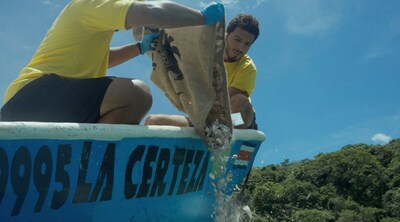
FIFCO's Innovative 'Back Home' Project Restores Marine Life in Costa Rica with AI
Reviving Costa Rica's Coastline: FIFCO's 'Back Home' Initiative
The practice of collecting seashells as souvenirs may seem harmless, but it has led to a dramatic environmental crisis in Costa Rica. In recent studies conducted by institutions like the University of Florida, it has been revealed that the removal of these shells from their natural habitats severely disrupts coastal ecosystems. This disruption not only threatens biodiversity but also alters sediment stability and compromises coastal areas' abilities to withstand climate change impacts.
Every year, an alarming six tons of shells are confiscated from tourists at Costa Rican airports. These shells often remain buried due to unknown origins, whether they hail from the Pacific or Caribbean. Without proper classification, safe return to the sea is nearly impossible. There are real dangers involved in the return process, such as the potential introduction of non-native organisms and parasites, which could further threaten local species.
To combat this issue, FIFCO launched the 'Back Home' project in collaboration with Imperial, the Ministry of Environment and Energy, AERIS, and the University of Costa Rica. This initiative aims to reintegrate confiscated shells back into their native habitats while developing a classification tool to identify their origins. Alongside this, an awareness platform has been established, featuring documentaries and educational content to inform the public about the importance of protecting marine ecosystems.
The technological heart of this project lies in a remarkable AI tool developed by FIFCO. Capable of classifying shells based on images, this AI boasts an impressive accuracy rate of up to 90% in mere seconds. It was trained on over 18,500 images across 525 different species, enabling it to distinguish between shells from the Caribbean and the Pacific effectively. This ensures that they are returned to their respective environments safely.
A monumental milestone was reached in 2024, as FIFCO successfully returned over 36,000 shells to their natural habitats, revitalizing their crucial roles in marine ecosystems. With this initiative, FIFCO has not only cleared stockpiles at airports but has also catalyzed a transformative approach toward conservation within the country.
In a move to foster global collaboration, FIFCO has made the open-source code for its AI model available to the scientific community. This allows other nations to develop similar classification systems tailored to their environments.
To learn more about this inspiring project and to see how its initiatives can serve as a model for international conservation efforts, visit Back Home.
Through FIFCO's 'Back Home' initiative, Costa Rica is taking a significant step toward rectifying environmental damage and promoting awareness about the delicate balance required to protect its biodiverse ecosystems. This project exemplifies how technology and conservation efforts can work hand-in-hand to create a sustainable future for our planet.

Topics Environment)










【About Using Articles】
You can freely use the title and article content by linking to the page where the article is posted.
※ Images cannot be used.
【About Links】
Links are free to use.